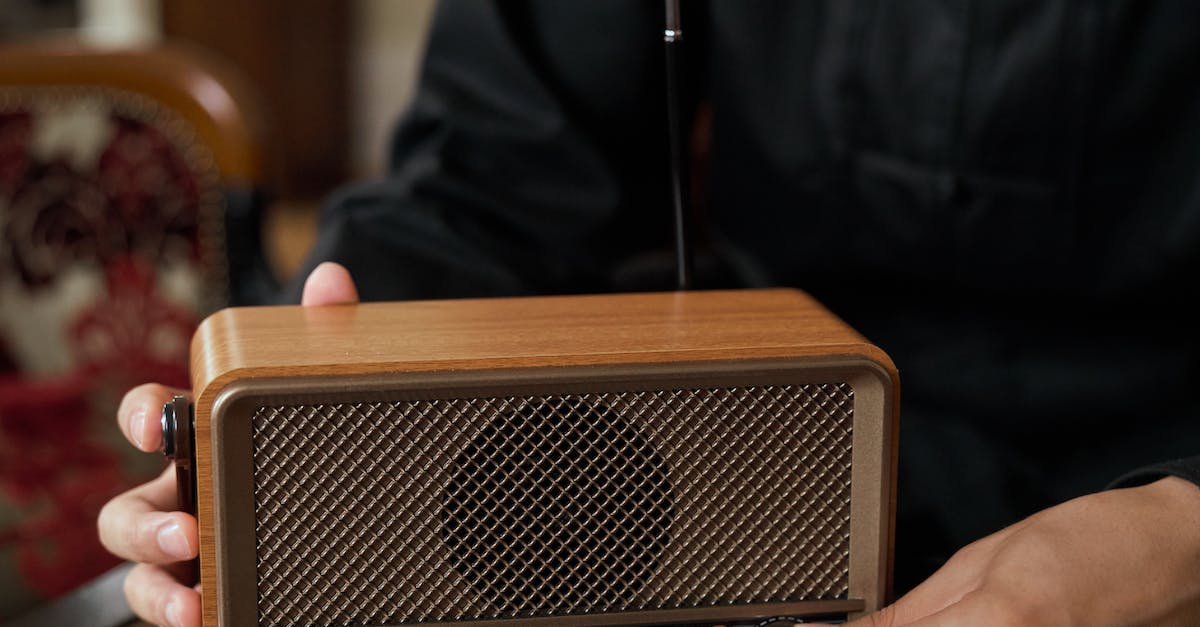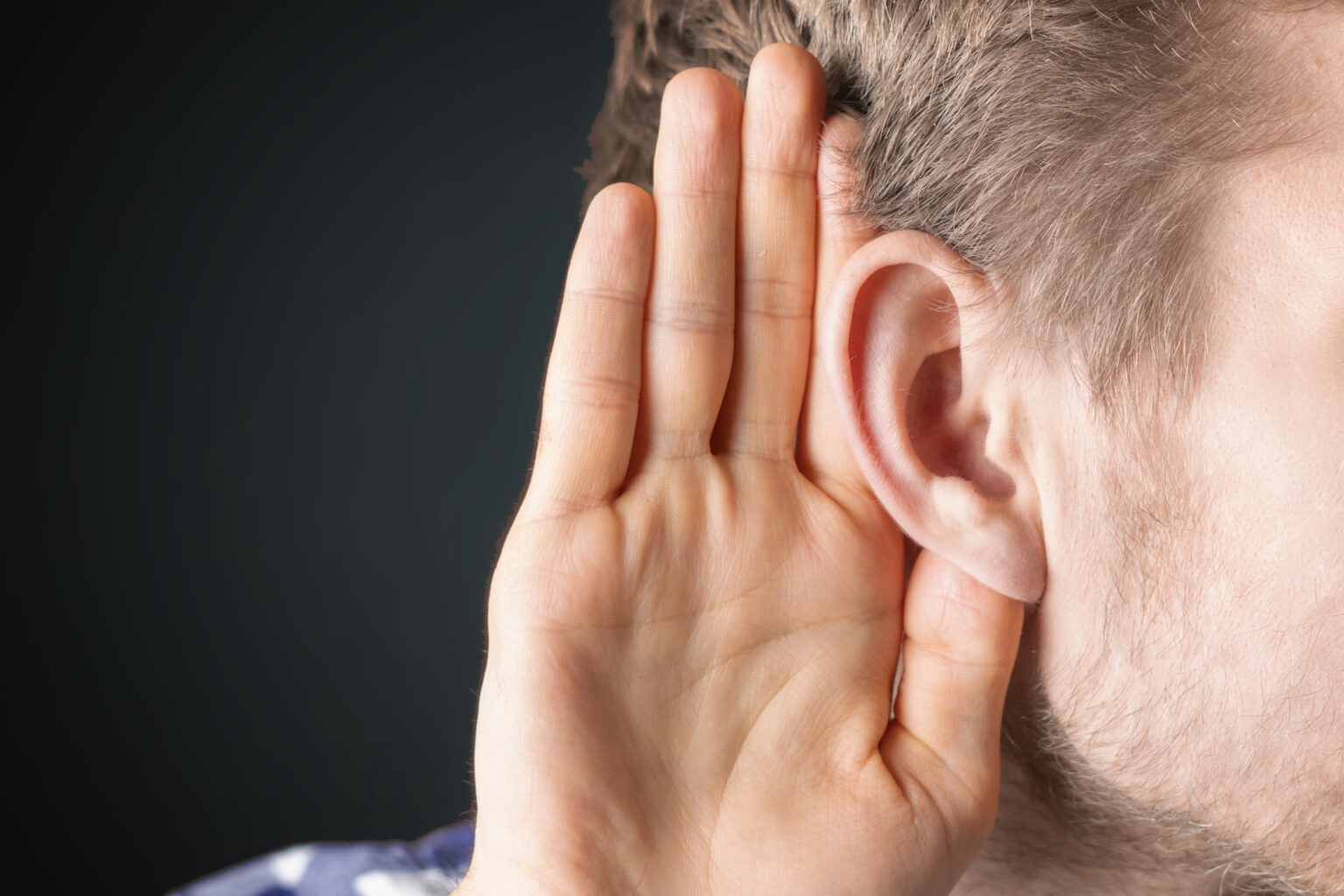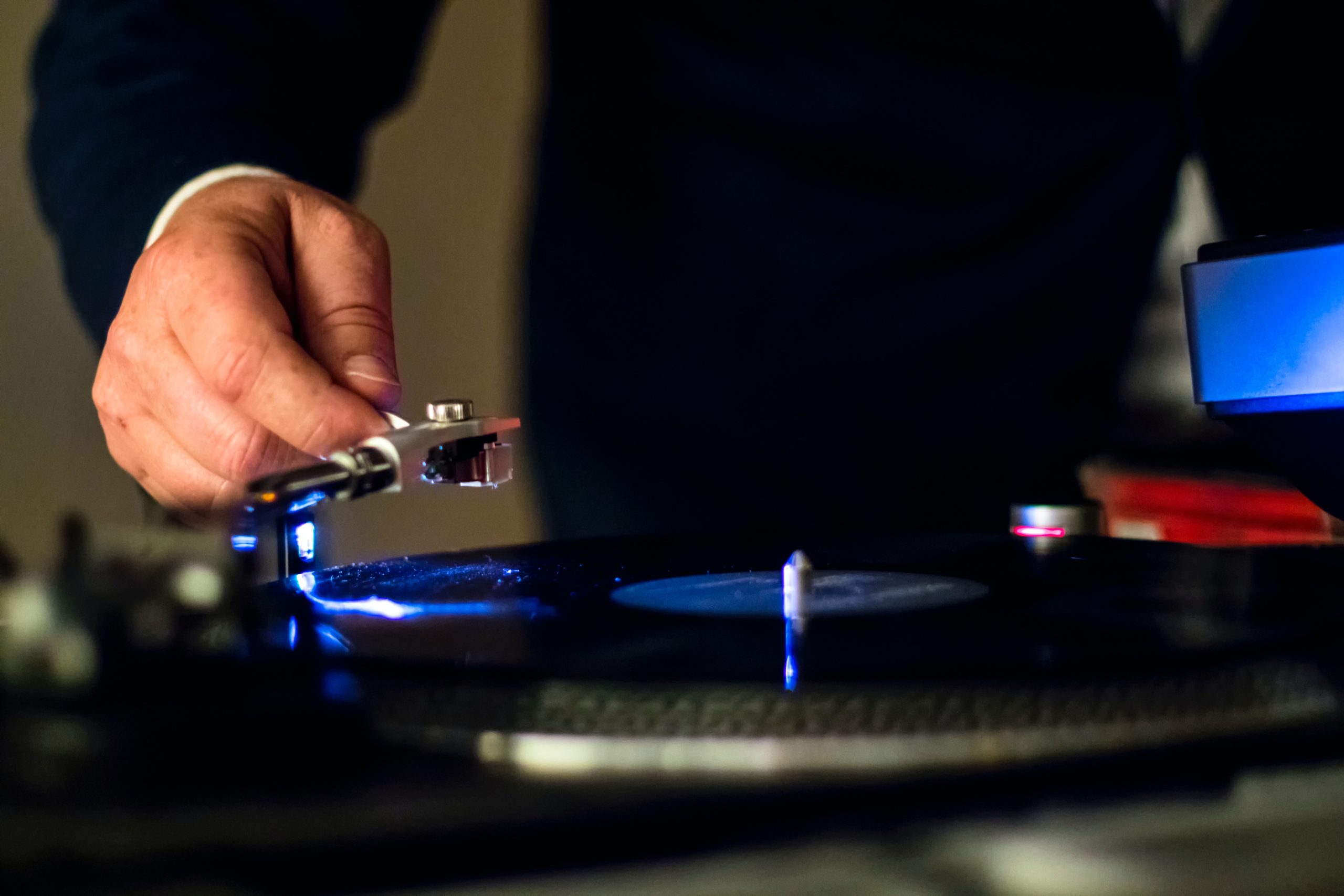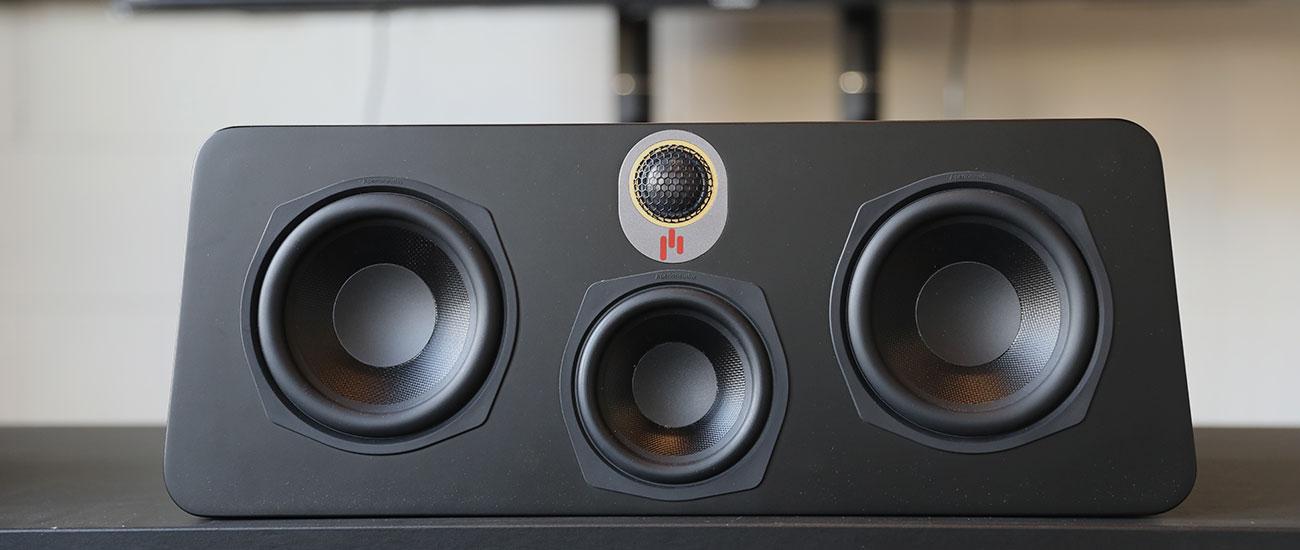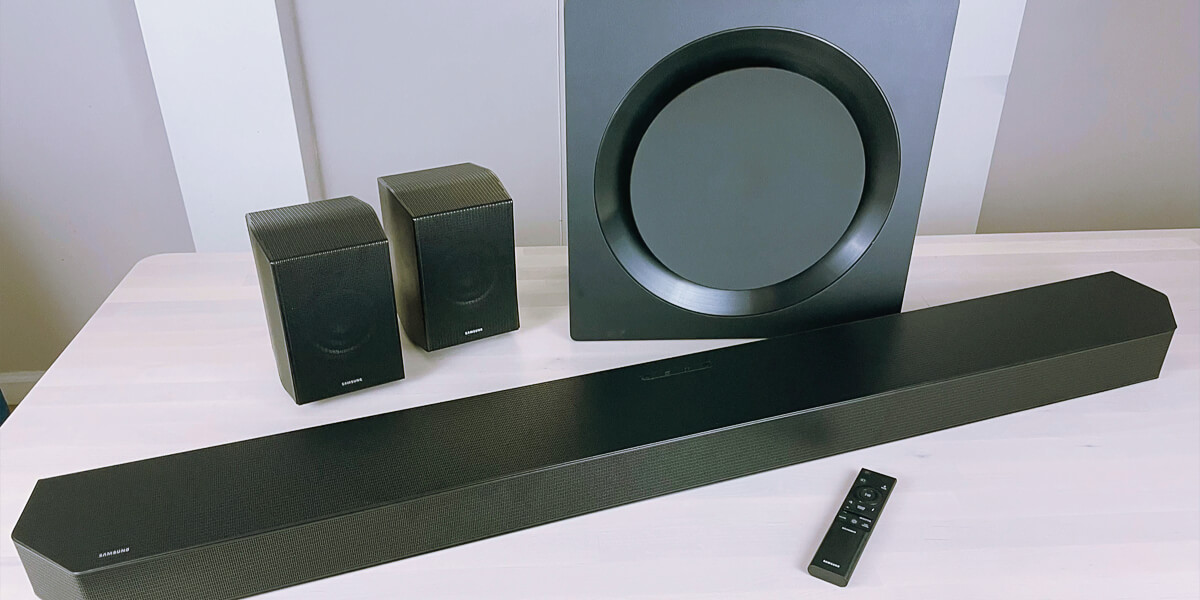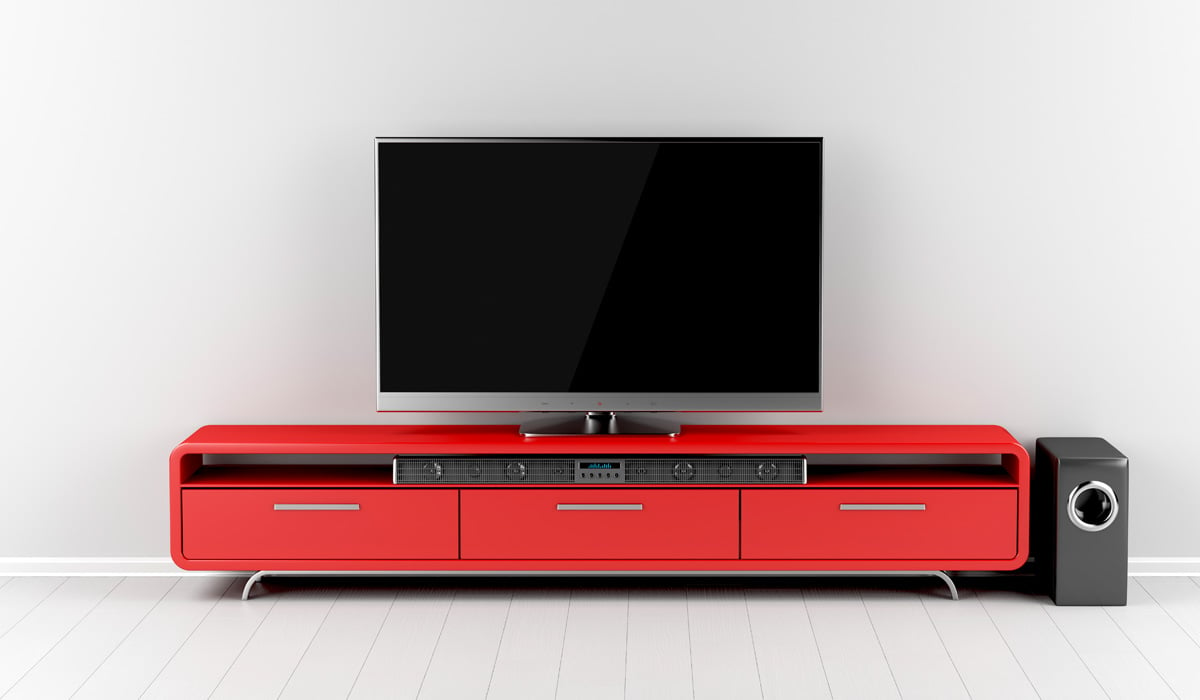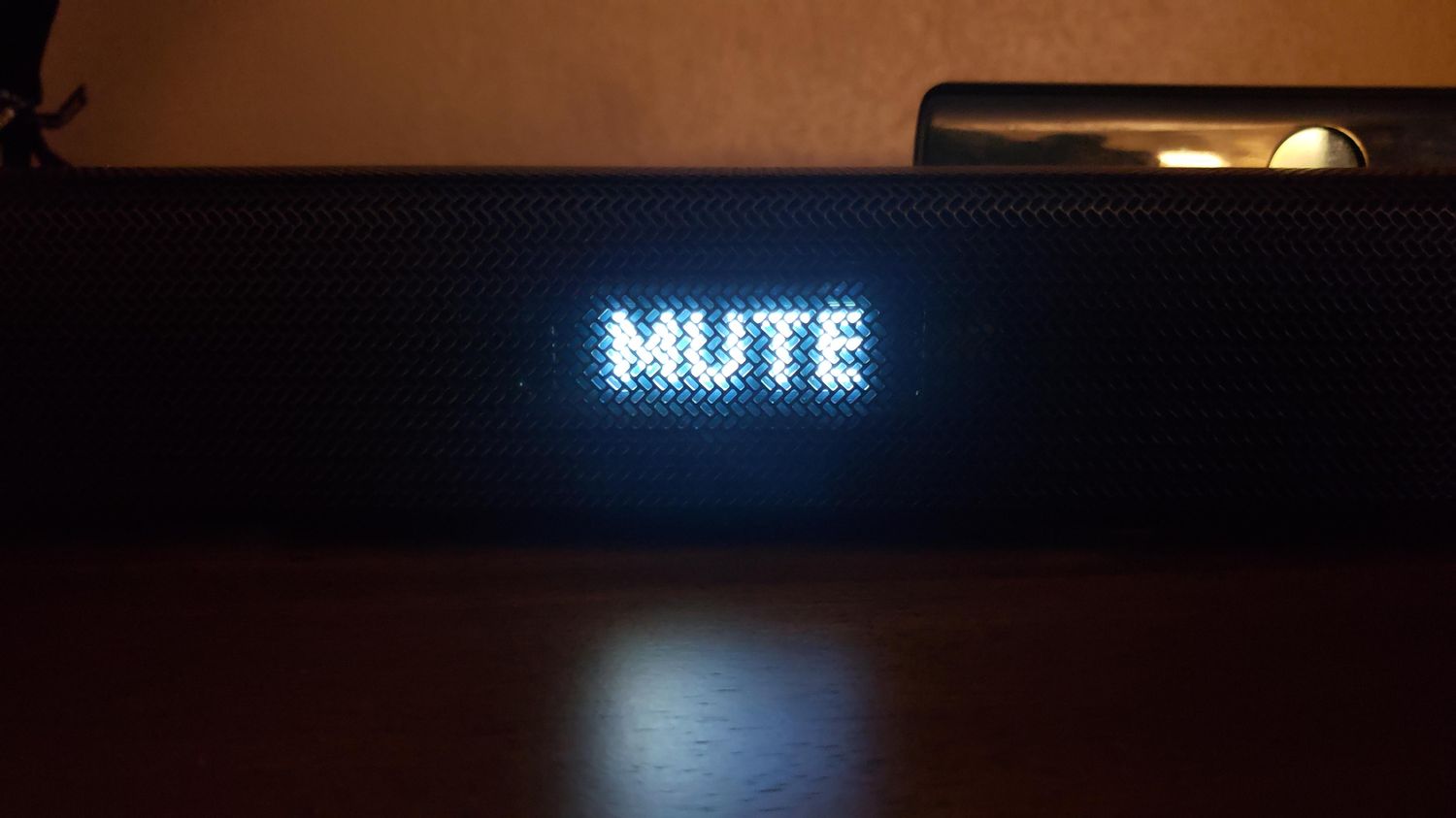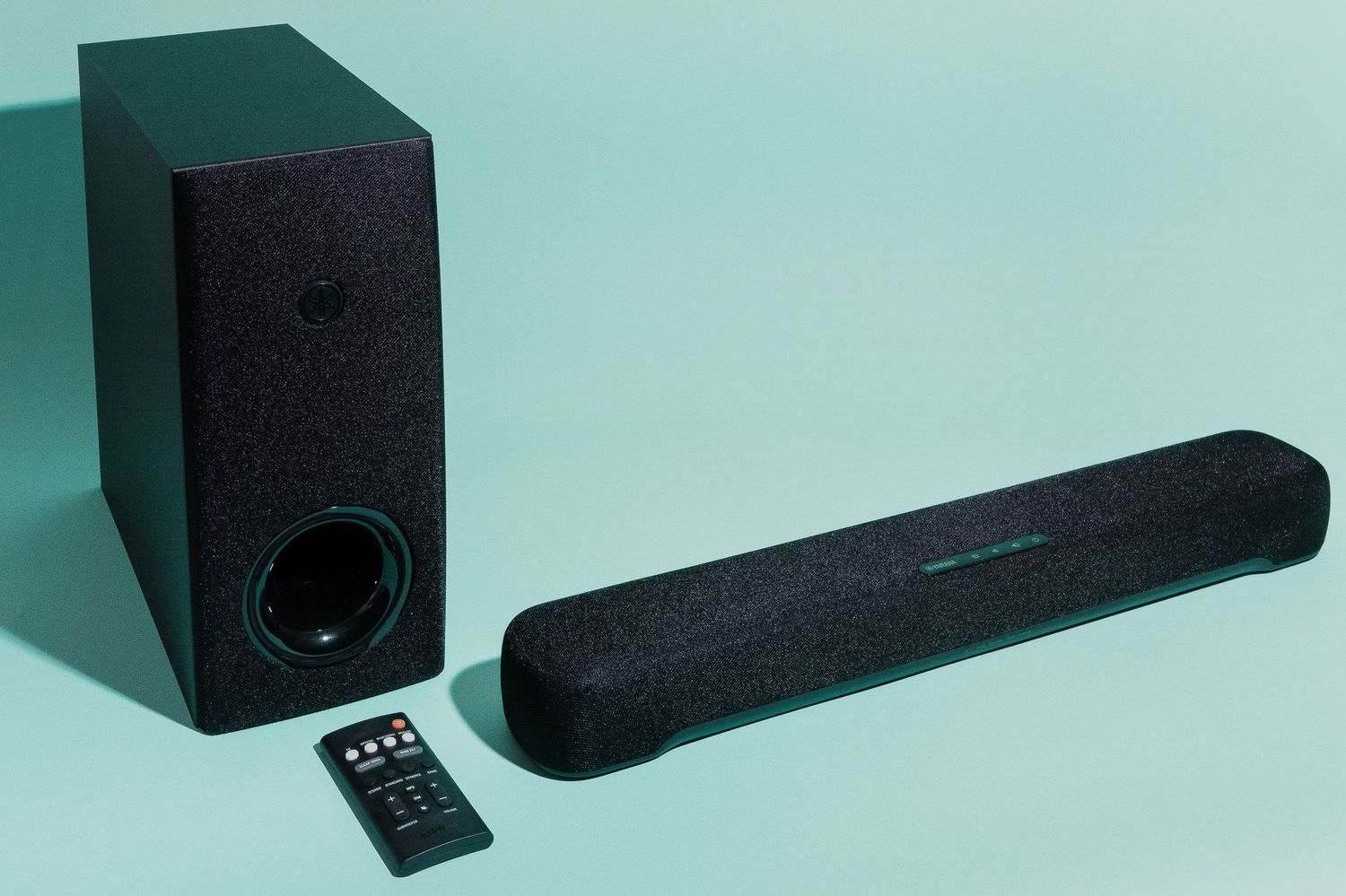Home>Production & Technology>Sound>Why Does My Ear Sound Muffled
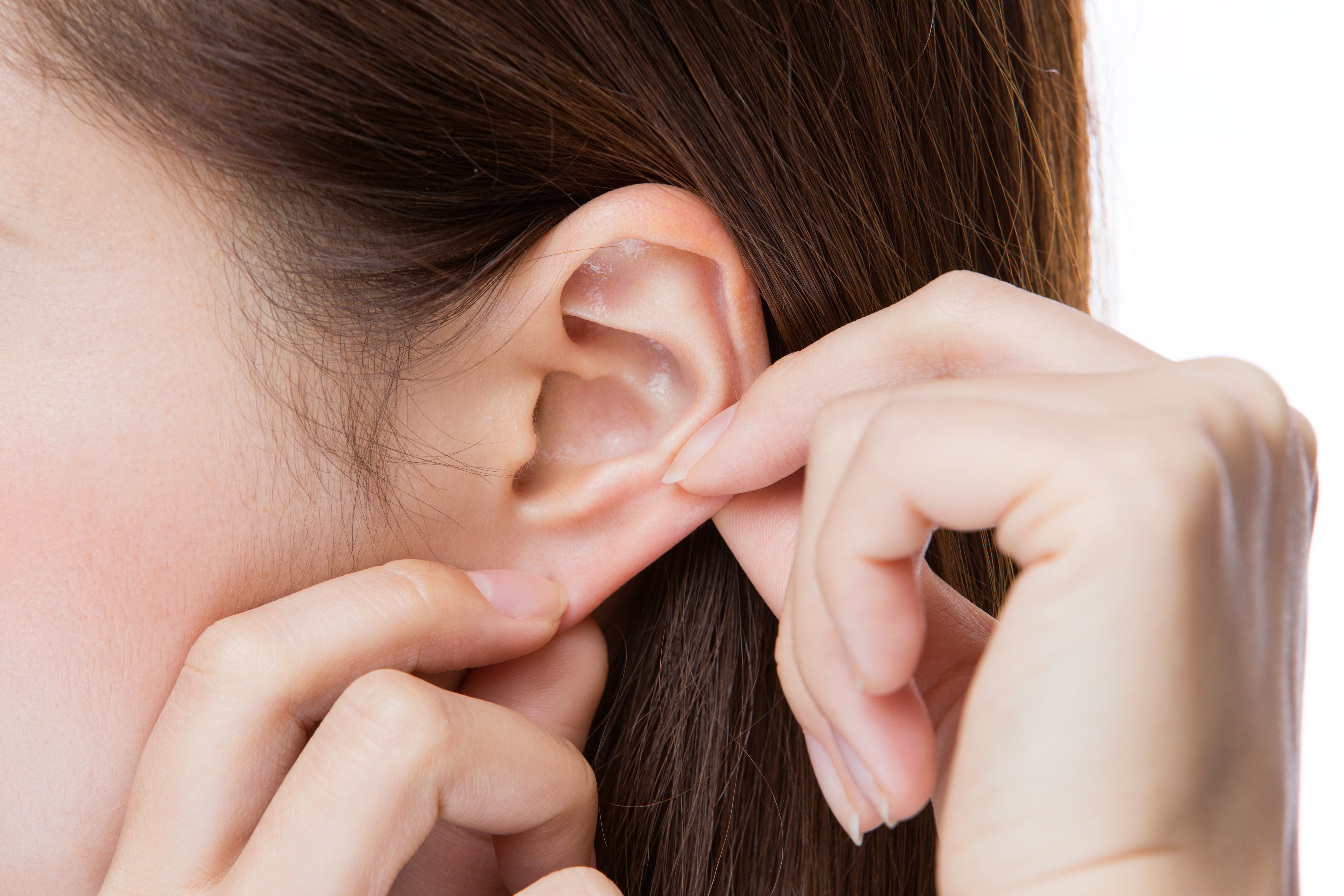

Sound
Why Does My Ear Sound Muffled
Published: December 18, 2023
Discover the reasons why your ear sounds muffled and learn how to alleviate this discomfort. Explore effective solutions for improving your hearing and resolving sound-related issues.
(Many of the links in this article redirect to a specific reviewed product. Your purchase of these products through affiliate links helps to generate commission for AudioLover.com, at no extra cost. Learn more)
Table of Contents
Introduction
Have you ever experienced the frustrating sensation of your ear sounding muffled? It’s a common issue that many people encounter at some point in their lives. Whether it’s a temporary sensation or a persistent problem, a muffled ear can be bothersome and even affect your daily activities.
There are several factors that can contribute to the feeling of a muffled ear. Understanding these causes can help you identify the underlying issue and find the appropriate treatment to alleviate the discomfort.
In this article, we will explore the various reasons why your ear may sound muffled and outline potential solutions. It’s important to note that while some causes can be easily resolved at home, others may require medical intervention. If you are unsure about the cause of your muffled ear or the appropriate course of action, it is always best to consult with a healthcare professional.
Now, let’s delve into the possible causes of a muffled ear and how they can affect your auditory experience.
Causes of Muffled Ear Sounds
The sensation of a muffled ear can be attributed to a variety of factors, ranging from minor to more serious conditions. Here are some common causes:
- Earwax Blockage: Earwax is a sticky substance produced by the ear to protect and lubricate the ear canal. However, excessive earwax buildup can lead to a muffled sensation as it blocks the sound waves from reaching the eardrum. This can be easily resolved through proper ear hygiene or professional earwax removal.
- Eustachian Tube Dysfunction: The Eustachian tubes connect the middle ear to the back of the throat, equalizing the pressure and helping to maintain proper hearing. When these tubes become blocked or fail to open properly, it can result in a muffled ear. This dysfunction is commonly caused by allergies, sinusitis, or a change in altitude.
- Sinusitis: Inflammation of the sinuses can cause congestion and a feeling of fullness in the ears, leading to muffled sounds. Sinusitis can be caused by allergies, infections, or structural abnormalities, and may require medical treatment.
- Allergies: Allergic reactions can cause the lining of the nose and sinuses to swell, leading to congestion and muffled hearing. This can be relieved by managing allergies through medication or avoiding triggers.
- Middle Ear Infection: Also known as otitis media, a middle ear infection can cause fluid buildup and inflammation, resulting in muffled sounds. It is more common in children but can affect adults too. Treatment usually involves antibiotics and pain management.
- Noise-Induced Hearing Loss: Exposure to loud noises, such as concerts or machinery, can damage the delicate structures of the inner ear, leading to muffled hearing. This type of hearing loss can be prevented by wearing ear protection in noisy environments.
These are just a few examples of the many causes that can contribute to a muffled ear. It’s essential to determine the underlying reason for your symptoms in order to receive appropriate treatment and alleviate any discomfort.
Earwax Blockage
One of the common causes of a muffled ear is a blockage of the ear canal due to excessive earwax buildup. Earwax, also known as cerumen, is a natural substance produced by the ear to protect and lubricate the ear canal. However, when wax accumulates and becomes impacted, it can cause a range of symptoms, including muffled hearing.
If you have a buildup of earwax, you may experience a sense of fullness in the affected ear, decreased hearing, and a muffled sound. Other symptoms may include ear pain, dizziness, or ringing in the ear (tinnitus).
Earwax blockage can occur due to several factors, such as overproduction of wax, improper ear hygiene practices, or the use of objects like cotton swabs or hairpins to clean the ears. These actions can push the wax deeper into the ear canal, leading to blockage.
If you suspect earwax blockage as the cause of your muffled ear, it is important to avoid inserting any objects into your ear in an attempt to remove the wax. This can potentially worsen the situation or cause injury to the ear canal. Instead, there are safer methods to alleviate the blockage:
- Over-the-counter eardrops: There are eardrops available at pharmacies that can help soften the earwax, making it easier to remove. Follow the instructions carefully and consult with a pharmacist if you have any doubts or concerns.
- Warm water irrigation: This method involves using a bulb syringe or specialized ear irrigation kit to gently flush warm water into the ear canal, helping to dislodge and remove the earwax. It is important to use lukewarm water and avoid excessive pressure to prevent damage to the eardrum.
- Seek professional help: If self-care measures do not alleviate the earwax blockage or if you are experiencing severe symptoms, it is advisable to seek assistance from a healthcare professional or an ear specialist (otolaryngologist). They can safely and effectively remove the earwax using specialized tools or irrigation.
Prevention is key when it comes to earwax blockage. Avoid inserting foreign objects into your ears, as this can push the wax deeper and increase the risk of blockage. If you are prone to excessive earwax buildup, consider regular ear hygiene practices, such as gently cleaning the outer ear with a washcloth and avoiding the use of cotton swabs or similar objects.
Remember, it is essential to consult with a healthcare professional if you are unsure about the appropriate method of earwax removal or if you experience severe symptoms. They can provide guidance and ensure the safe and effective management of earwax blockage.
Eustachian Tube Dysfunction
Eustachian tube dysfunction can be another common cause of a muffled ear. The Eustachian tubes are small passageways that connect the middle ear to the back of the throat. These tubes play a crucial role in equalizing the pressure in the middle ear and allowing for proper hearing.
When the Eustachian tubes become blocked or fail to open and close properly, it can lead to a feeling of fullness or pressure in the ears, along with muffled hearing. Often, this dysfunction is caused by factors such as allergies, sinusitis, or a change in altitude.
Allergies can cause inflammation and swelling of the lining of the Eustachian tubes, obstructing their normal function. This can result in fluid accumulation and muffled hearing. Similarly, sinusitis, which is inflammation of the sinuses, can cause congestion in the nasal passages and Eustachian tubes, leading to Eustachian tube dysfunction and muffled ear sounds.
Changes in altitude, such as when flying in an airplane or driving in the mountains, can also affect the Eustachian tubes. The rapid change in air pressure can cause the tubes to temporarily close or become blocked, resulting in a muffled ear sensation.
If you’re experiencing Eustachian tube dysfunction, there are a few techniques you can try to help alleviate the symptoms:
- Swallowing or yawning: Swallowing, yawning, or chewing gum can help open up the Eustachian tubes and equalize the pressure, providing relief from the muffled ear sensation.
- Nasal decongestants: Over-the-counter nasal decongestant sprays or oral medications can help reduce inflammation and relieve congestion in the nasal passages, indirectly aiding in the opening of the Eustachian tubes.
- Applying warm compresses: Placing a warm compress or towel over the affected ear can help soothe the discomfort and promote the opening of the Eustachian tubes.
- Using a saline nasal rinse: Nasal irrigation with a saline solution can help clear out mucus and reduce congestion in the nasal passages, supporting Eustachian tube function.
If self-care measures do not provide relief or if your symptoms worsen, it is advisable to consult with a healthcare professional. They may recommend further treatment options, such as prescription medications, to address the underlying cause of Eustachian tube dysfunction.
It’s important to be patient when dealing with Eustachian tube dysfunction, as it may take time for symptoms to resolve. If you frequently experience issues with your Eustachian tubes, it is advisable to consult with an ear, nose, and throat (ENT) specialist for a proper evaluation and management plan.
Sinusitis
Sinusitis is a common condition characterized by inflammation of the sinuses, which are air-filled cavities located in the bones of the face. When the sinuses become inflamed, it can lead to various symptoms, including nasal congestion, facial pressure, headache, and muffled ear sounds.
The sinuses and the Eustachian tubes are interconnected, and any inflammation or congestion in the sinuses can impact the proper functioning of the Eustachian tubes. This can result in a blocked sensation and muffled hearing.
Sinusitis can be classified as acute or chronic. Acute sinusitis typically lasts less than four weeks and is often caused by a viral or bacterial infection. Chronic sinusitis, on the other hand, lasts longer than twelve weeks and can be due to recurrent infections, nasal polyps, or other underlying conditions.
Common causes of sinusitis include:
- Viruses: Many cases of acute sinusitis are a result of viral infections, such as the common cold or influenza.
- Bacteria: Bacterial infections can also cause sinusitis, especially when they develop after a viral infection or when the immune system is weakened.
- Allergies: Allergic reactions to substances like pollen, dust mites, or pet dander can trigger sinusitis symptoms, including nasal congestion and muffled ear sounds.
- Nasal polyps: These noncancerous growths can obstruct the sinuses and contribute to chronic sinusitis.
- Anatomical abnormalities: Structural issues in the nose or sinuses can block proper drainage and increase the risk of sinusitis.
If you suspect sinusitis as the cause of your muffled ear, you can try some self-care measures to alleviate the symptoms:
- Nasal irrigation: Using a saline solution or a neti pot to rinse the nasal passages can help clear mucus, reduce congestion, and relieve pressure in the sinuses.
- Steam inhalation: Inhaling steam from a bowl of hot water or taking a hot shower can help loosen mucus, open up the nasal passages, and reduce sinus pressure.
- Over-the-counter medications: Non-prescription pain relievers, nasal sprays, or decongestants may provide temporary relief from sinusitis symptoms.
If your symptoms persist, worsen, or are accompanied by severe pain, fever, or nasal discharge, it is important to seek medical attention. A healthcare professional can evaluate your condition, provide a proper diagnosis, and prescribe appropriate treatment, such as antibiotics for bacterial sinusitis or other medications to address the underlying cause.
Additionally, if you frequently suffer from chronic sinusitis, your doctor may recommend further interventions, such as allergy testing, immunotherapy, or surgical options, to alleviate the muffled ear sounds and other sinus-related symptoms.
Allergies
Allergies are a common cause of muffled ear sounds. Allergic reactions occur when the immune system overreacts to substances that are typically harmless, such as pollen, dust mites, pet dander, or certain foods. One of the symptoms of allergies can be swelling and inflammation of the nasal passages, which can in turn affect the Eustachian tubes and lead to muffled hearing.
When you are exposed to an allergen, your body releases chemicals, such as histamine, which can cause the nasal tissues to become swollen and congested. This congestion can extend to the Eustachian tubes, making it more difficult for them to open and close properly. As a result, you may experience a muffled or blocked sensation in your ears.
Other common symptoms of allergies include sneezing, itching eyes, runny nose, and coughing. If you have a history of allergies and experience these symptoms along with muffled ear sounds, it is likely that allergies are the cause.
Managing allergies can help alleviate muffled ear symptoms. Here are some approaches you can try:
- Identify and avoid triggers: It is important to identify the specific allergens that trigger your symptoms and then take steps to minimize your exposure to them. This may involve avoiding certain foods, regularly cleaning your living environment, using allergy-proof bedding, or staying indoors during peak pollen seasons.
- Over-the-counter antihistamines: Non-prescription antihistamine medications can help reduce the allergic response and alleviate symptoms like nasal congestion and muffled ear sounds. It’s important to follow the instructions and consult with a pharmacist if you have any concerns.
- Nasal corticosteroids: These prescription nasal sprays can help reduce inflammation and congestion in the nasal passages, which indirectly relieves symptoms in the ears.
- Allergy shots (immunotherapy): For severe allergies that do not respond to other treatments, your doctor may recommend allergy shots. These injections gradually expose your body to increasing amounts of allergens over time, helping to desensitize your immune system and reduce symptoms.
If your symptoms persist or worsen despite these measures, it is important to consult with an allergist or healthcare professional. They can provide a proper diagnosis and recommend more advanced treatment options tailored to your specific allergies and symptoms.
By effectively managing your allergies, you can reduce the occurrence of muffled ear sounds and other associated symptoms, improving your overall quality of life during allergy seasons or when exposed to particular allergens.
Middle Ear Infection
A middle ear infection, also known as otitis media, can be a cause of muffled ear sounds. This infection occurs when the middle ear, the space behind the eardrum, becomes inflamed and filled with fluid. Common in children, middle ear infections can also affect adults.
The infection can occur as a result of a viral or bacterial infection that spreads from the upper respiratory tract. Common symptoms include ear pain, fever, hearing loss, and muffled or reduced hearing. The accumulation of fluid in the middle ear can disrupt the normal transmission of sound, leading to a muffled sensation.
Middle ear infections often occur following a cold, flu, or allergic rhinitis, as these conditions can cause congestion and inflammation in the nasal passages and Eustachian tubes. The close proximity of the Eustachian tubes to the middle ear allows bacteria or viruses to travel from the nose and throat into the middle ear, leading to infection.
If you suspect a middle ear infection, it is crucial to seek medical attention, especially for children or if you experience severe symptoms. Your doctor will examine your ears and may recommend appropriate treatment options, which may include:
- Antibiotics: If your middle ear infection is bacterial, your doctor may prescribe antibiotics to help clear the infection.
- Pain relief: Over-the-counter pain relievers, such as acetaminophen or ibuprofen, can help alleviate ear pain associated with the infection.
- Warm compresses: Applying a warm compress to the affected ear can help soothe discomfort and promote fluid drainage.
- Observation: In some cases, especially for mild infections, your doctor may recommend a wait-and-see approach, as many middle ear infections can resolve on their own without medical intervention.
It is important to follow your doctor’s advice and complete the prescribed course of antibiotics, if necessary, to fully eradicate the infection.
Preventing middle ear infections includes practicing good hygiene, such as ensuring regular handwashing, avoiding exposure to secondhand smoke, and keeping up with vaccinations (such as the pneumococcal vaccine). For children with recurrent ear infections, your doctor may recommend other interventions, such as tubes (tympanostomy tubes) inserted into the eardrums to help promote ventilation and drainage.
If you or your child frequently experience muffled ear sounds or recurrent middle ear infections, consult with an ear, nose, and throat (ENT) specialist for further evaluation and management strategies.
Noise-Induced Hearing Loss
Noise-induced hearing loss is a common cause of muffled ear sounds that occurs as a result of prolonged exposure to loud noises. Excessive noise can damage the delicate hair cells in the inner ear, leading to hearing loss and a muffled sensation.
Repeated or prolonged exposure to loud sounds, such as concerts, machinery, or loud music, can cause cumulative damage to the ear over time. This can result in the gradual onset of hearing loss, as well as a muffled or blocked sensation in the affected ear.
The severity of noise-induced hearing loss depends on several factors, including the intensity and duration of the noise exposure. Individuals who work in noisy environments or regularly participate in recreational activities with high noise levels are at a higher risk of developing this type of hearing loss.
Preventing noise-induced hearing loss is crucial. Here are some preventive measures you can take:
- Use ear protection: When exposed to loud noises, such as during concerts or while using power tools, it is important to use ear protection such as earplugs or earmuffs to reduce the impact of noise on your ears.
- Take breaks from loud environments: If you find yourself in a loud environment for an extended period, make sure to take regular breaks to give your ears a rest and reduce the risk of damage.
- Lower the volume: When listening to music or using headphones, keep the volume at a reasonable level to protect your hearing.
If you suspect noise-induced hearing loss and experience muffled ear sounds or difficulties hearing, it is important to consult with an audiologist or healthcare professional specializing in hearing-related issues. They can conduct a hearing assessment and provide guidance on managing and preventing further damage.
While noise-induced hearing loss is often permanent, there are treatment options available to improve quality of life, such as hearing aids or cochlear implants. Additionally, early intervention and protecting your ears from further noise exposure can help slow down the progression of hearing loss.
Remember, prevention is key when it comes to noise-induced hearing loss. By being mindful of your environment and taking appropriate precautions, you can preserve your hearing and reduce the risk of developing muffled ear sounds due to noise exposure.
Other Possible Causes
While earwax blockage, Eustachian tube dysfunction, sinusitis, middle ear infections, and noise-induced hearing loss are common causes of muffled ear sounds, there are other potential factors that can contribute to this symptom. Here are some additional causes to be aware of:
- Foreign object in the ear: If a small object, like a bead or insect, becomes lodged in the ear canal, it can cause a muffled ear sensation. It is important to seek immediate medical attention to safely remove the object and prevent further complications.
- Temporomandibular joint (TMJ) disorder: Dysfunction in the jaw joint, known as TMJ disorder, can lead to symptoms like jaw pain, facial pain, and a sensation of ear fullness or muffled hearing.
- Barotrauma: Rapid changes in atmospheric pressure, such as during air travel or scuba diving, can cause barotrauma, resulting in a blocked or muffled ear sensation.
- Certain medications: Some medications, such as certain antibiotics or diuretics, can have side effects that impact the ears and cause muffled hearing. If you experience changes in hearing after starting a new medication, consult with a healthcare professional.
- Meniere’s disease: Meniere’s disease is a disorder of the inner ear that can cause recurrent episodes of vertigo, hearing loss, and a feeling of fullness or muffled hearing in the affected ear.
If you are experiencing muffled ear sounds and are unsure of the cause, it is advisable to seek medical advice. A healthcare professional can evaluate your symptoms, conduct any necessary tests, and provide an accurate diagnosis. They will then recommend appropriate treatment options based on the underlying cause of your muffled ear sensation.
Keep in mind that self-diagnosis may lead to incorrect assumptions and delays in receiving the appropriate care. Therefore, it is essential to consult with a medical professional for an accurate assessment and personalized treatment plan.
When to See a Doctor
If you are experiencing muffled ear sounds, it is important to pay attention to the duration and severity of your symptoms. While some causes may resolve on their own or with simple home remedies, others may require medical intervention. Here are some indications of when to seek medical attention:
- Persistent or worsening symptoms: If your muffled ear sounds persist for an extended period or worsen despite home remedies, it is advisable to consult with a healthcare professional. They can assess your condition, perform necessary examinations, and determine the underlying cause.
- Severe pain or discomfort: If you experience severe ear pain, especially accompanied by other symptoms like fever or drainage from the ear, it is important to seek immediate medical attention. These could be signs of an infection or other serious condition.
- Sudden hearing loss: If you experience a sudden loss of hearing in one or both ears, it is crucial to consult with a doctor as soon as possible. Rapid-onset hearing loss may indicate an urgent medical condition that requires immediate evaluation and treatment.
- Recurrent or chronic symptoms: If your muffled ear sounds are recurring or persistent, it is important to consult with a healthcare professional for further evaluation. They can determine the underlying cause and develop a long-term management plan tailored to your specific needs.
- Associated symptoms: If your muffled ear sounds are accompanied by other concerning symptoms, such as dizziness, balance problems, facial weakness, or sudden changes in vision, it is crucial to seek medical attention promptly, as these may signal a more serious underlying condition.
Remember, it is always better to err on the side of caution when it comes to your health. Even if your symptoms seem relatively mild, if you have any concerns or uncertainties, it is advisable to consult with a healthcare professional. They can provide an accurate diagnosis, determine the best course of action, and provide appropriate treatment or referrals to specialists if necessary.
Your doctor or healthcare provider is the best resource to provide personalized guidance based on your specific situation. They have the knowledge, expertise, and tools to properly evaluate and address your muffled ear sounds, ensuring your overall ear health and well-being.
Conclusion
A muffled ear can be a bothersome symptom that can have various underlying causes. Earwax blockage, Eustachian tube dysfunction, sinusitis, middle ear infections, noise-induced hearing loss, and other factors can contribute to this sensation. Identifying the cause of your muffled ear sounds is essential in order to determine the appropriate treatment and find relief.
If you experience a muffled ear, it is important to practice good ear hygiene and avoid inserting any objects into your ear that can worsen the situation. For common causes like earwax blockage and sinusitis, self-care measures such as over-the-counter remedies or warm compresses may provide relief. However, for persistent or severe symptoms, it is advisable to seek medical attention for proper diagnosis and treatment.
Your healthcare professional will evaluate your symptoms, conduct necessary examinations, and recommend suitable interventions. They may suggest prescription medications, earwax removal techniques, allergy management strategies, or other appropriate measures based on the underlying cause of your muffled ear sounds.
Prevention is key in maintaining good ear health. Protecting your ears from loud noises, practicing proper ear hygiene, managing allergies, and seeking timely medical attention can help prevent muffled ear sounds and associated complications.
If you are uncertain about the cause of your muffled ear or have concerns about your ear health, it is always best to consult with a healthcare professional. They are equipped to provide accurate diagnoses, personalized treatment plans, and guidance to help restore your hearing and well-being.
Remember, taking care of your ears is an essential part of maintaining your overall health and quality of life. By understanding the causes, seeking appropriate treatment, and practicing preventive measures, you can ensure optimal ear health and enjoy clear and unimpeded hearing.

